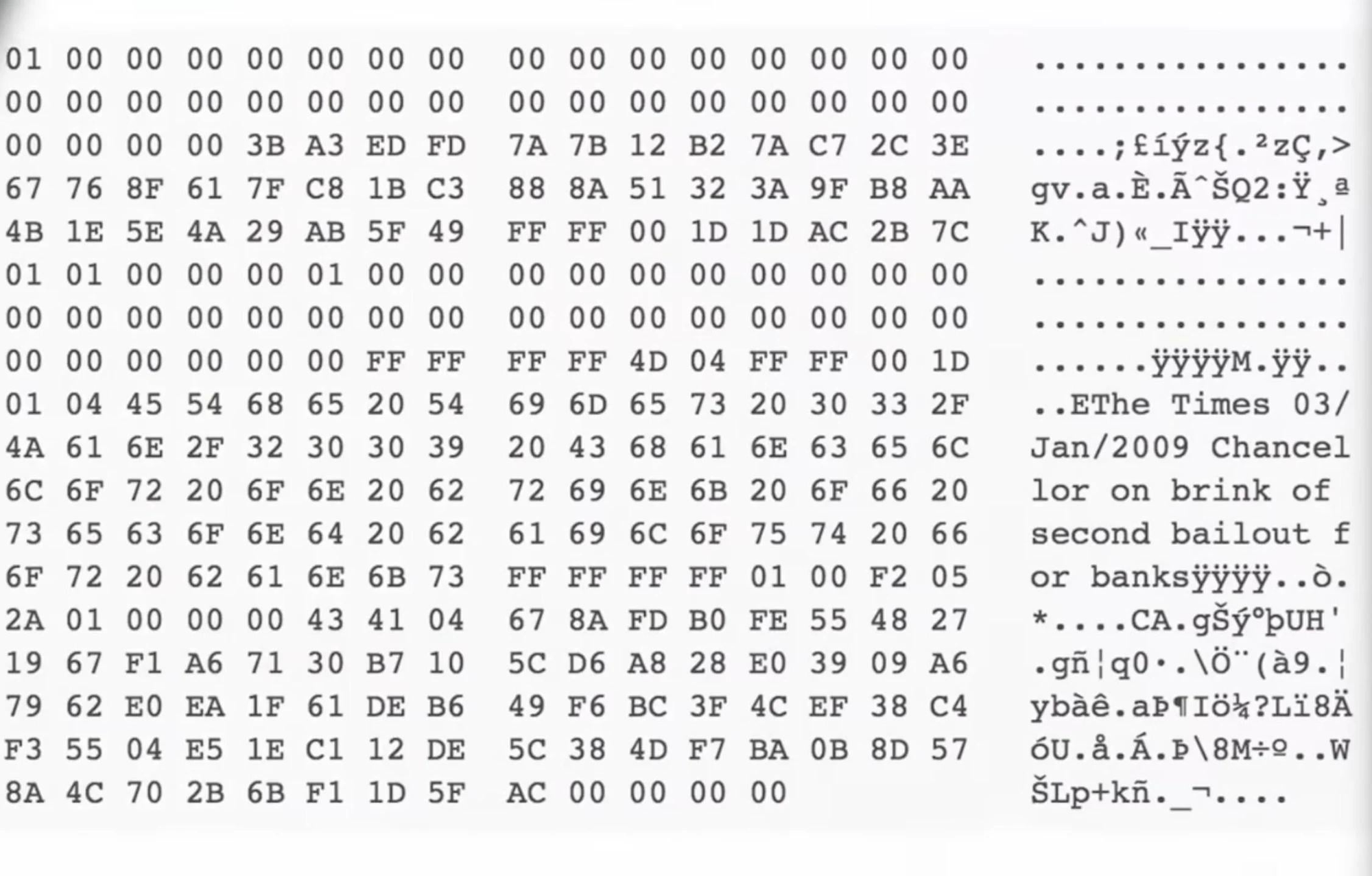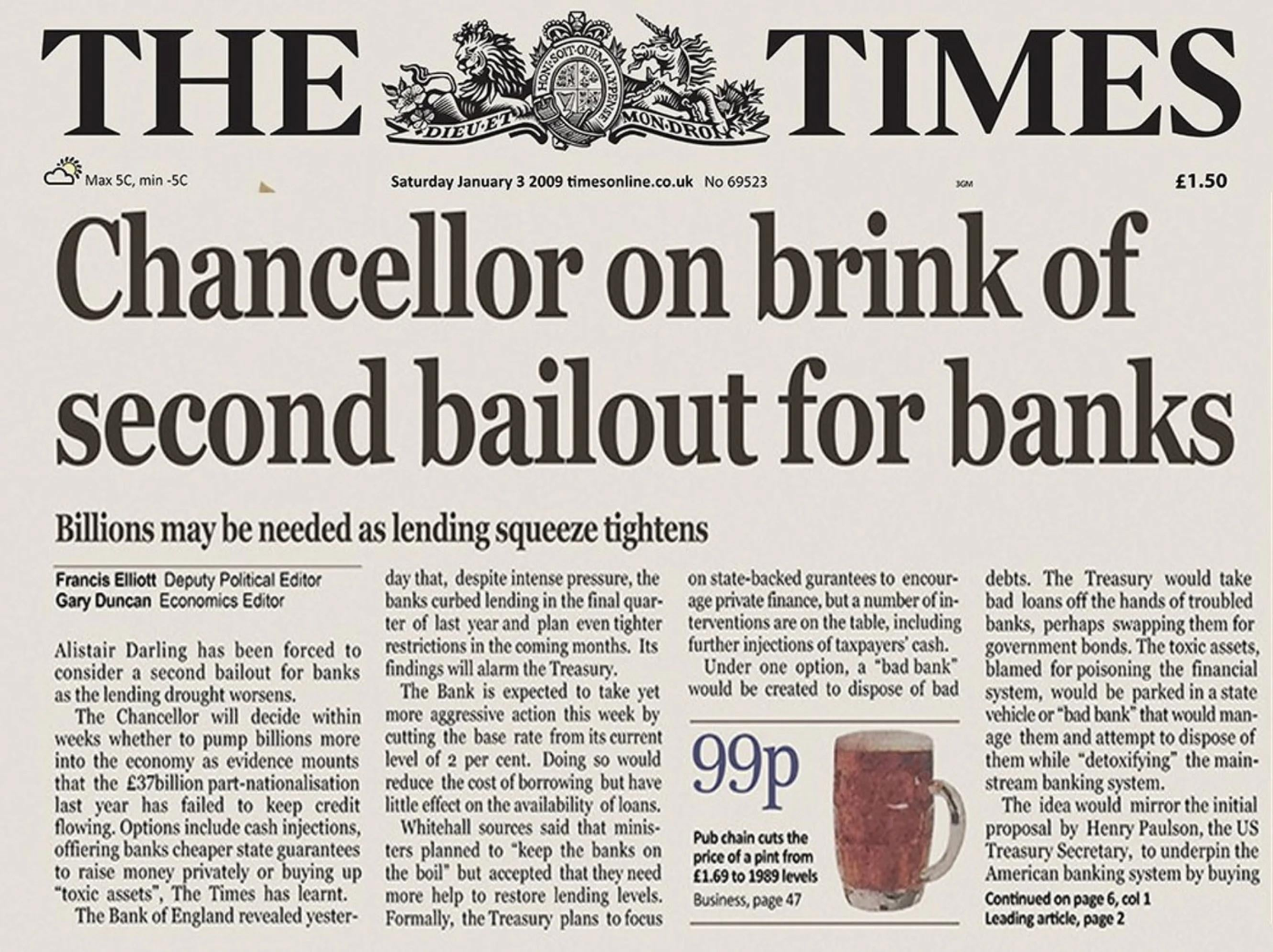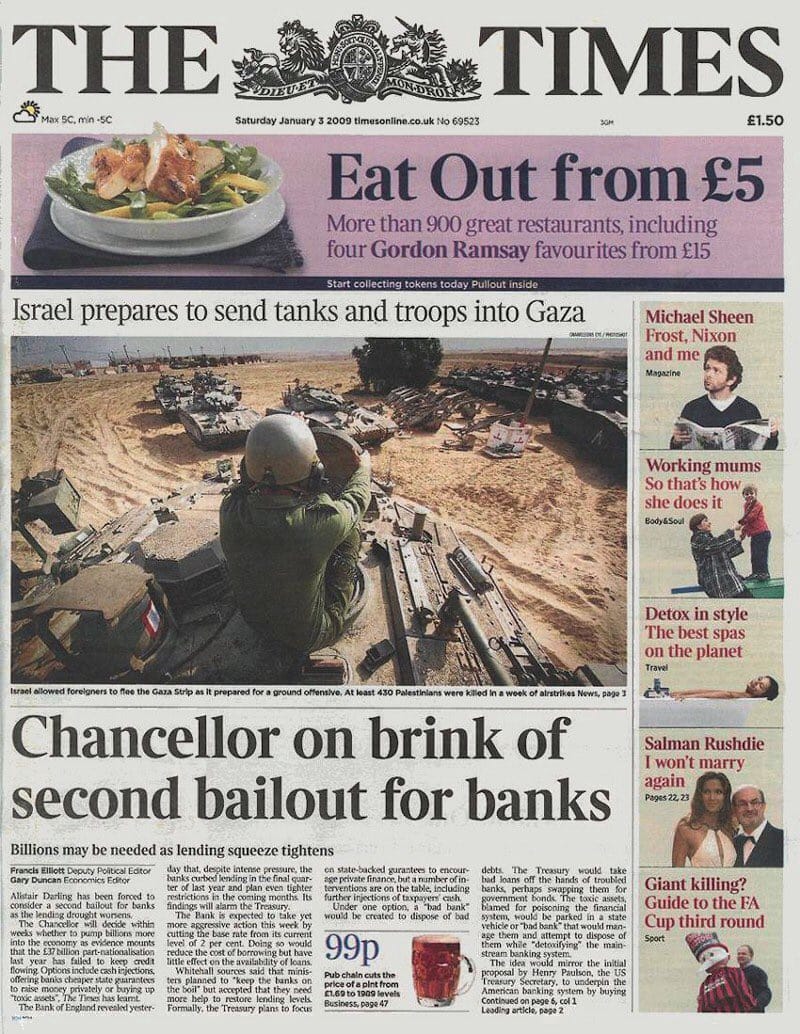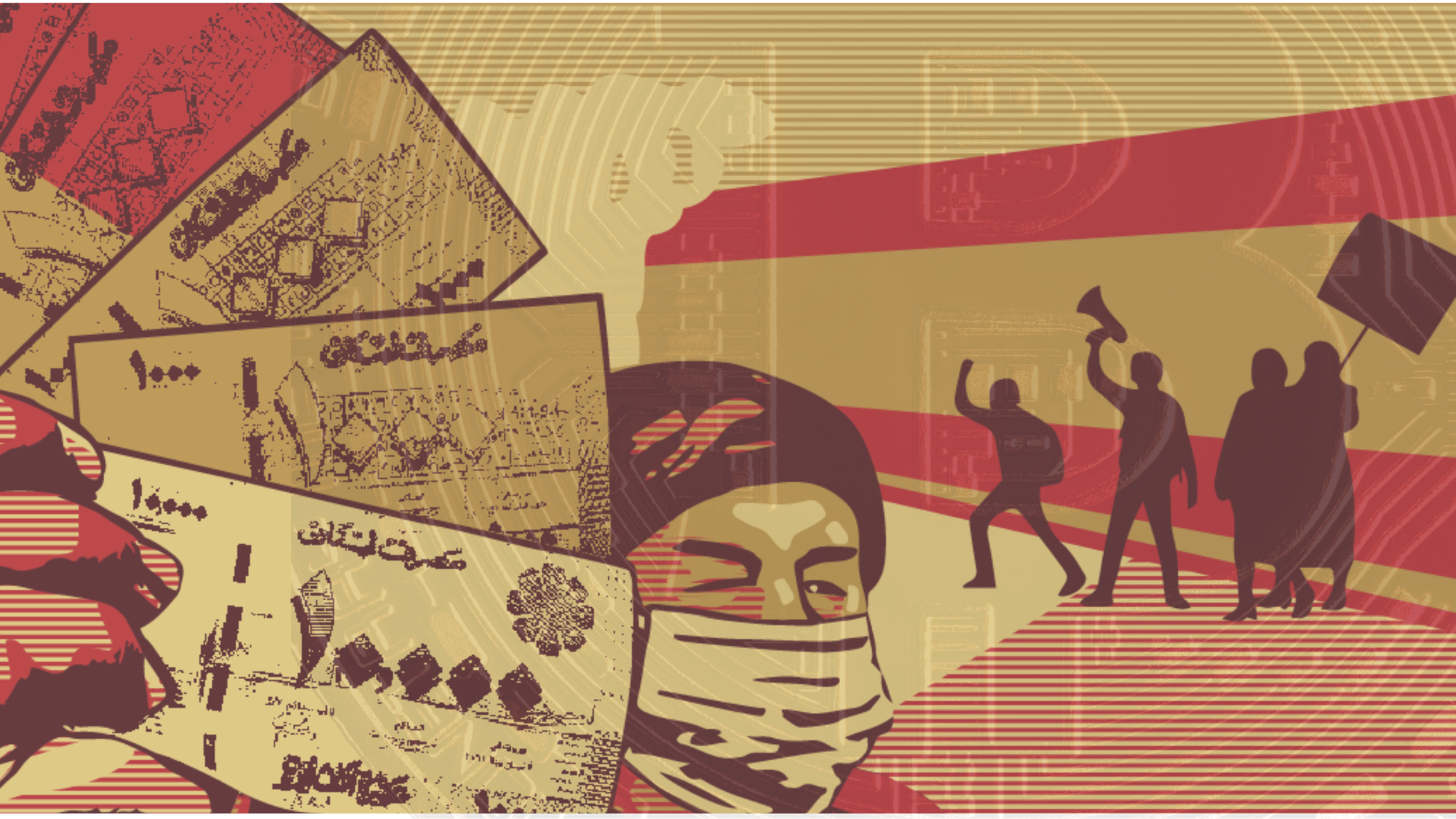Sixteen years ago, the anonymous creator of Bitcoin set in motion a paradigm shift by launching the Bitcoin blockchain and publishing its first block— known as the "genesis block." Today, Bitcoin represents a critical lifeline for civil society in repressive contexts.
Hidden within the genesis block’s hexadecimal code is a short, human-readable message that captures the political and economic turmoil of the time, and offers a glimpse into the very purpose behind Bitcoin's creation.


The Bitcoin genesis block, and the embedded Times headline
On the right-hand side of the block, the message reads: "The Times 03/Jan/2009 Chancellor on brink of second bailout for banks". This refers to the imminent decision by the UK's chancellor Alistair Darling to once again use taxpayer money to prevent a failure of UK banks, due to the "toxic assets" they had taken on during the financial exuberance of the preceding decade. This came less than 3 months after £37 billion was spent on the same purpose.
Bitcoin was created in protest at the manipulation of currencies and economies writ large to benefit the wealthy, socializing economic risk whilst privatising the reward, as the global financial crisis highlighted. Bitcoin was a currency designed to be outside the hands of elites and non manipulable.
A new opportunity
It is difficult to imagine that Satoshi Nakamoto - Bitcoin’s creator - could have foreseen what Bitcoin would eventually become. Today it has a market cap of almost $2tn, making it the 7th largest asset in the world, and is being actively used worldwide by governments, corporations, individuals, and most importantly by human rights activists - who use Bitcoin when their governments or payment providers repress or censor them.
In the 21st century, being blocked by payment providers such as banks, PayPal and Western Union should no longer be a barrier to the vital work of civil society. We should no longer appeal to the institutions that systemically dehumanize, securitize, and ignore non-Western people to allow us to transact.
If a country's banking system is corrupt and dysfunctional, or if using it risks revealing the identities of activists and their connections to an abusive government, it is now possible to circumvent that banking system using a global, censorship-resistant currency.
Israel’s financial oppression of Palestinians
Meanwhile, just above the headline referred to in the Genesis Block, on the same Times front page, is another headline which has been less-remembered by the Bitcoin community: Israel prepares to send tanks and troops into Gaza. This, too, captures an important part of the zeitgeist of Bitcoin. As part of the long-running oppression of Palestinians by Israel, three years ago the Israeli government labelled 6 long-running and respected Palestinian NGOs as terrorist organisations, raiding their offices, forcibly closing their bank accounts and denying them access to their funds. This, too, is a facet of the financial system which Bitcoin seeks to fix, by offering the oppressed a way to transact which cannot be blocked.

Enabling human rights activists and civil society organisations to use Bitcoin is something we're actively working on at Kawaakibi Foundation. If it sounds like this could help you, please get in touch with us.



